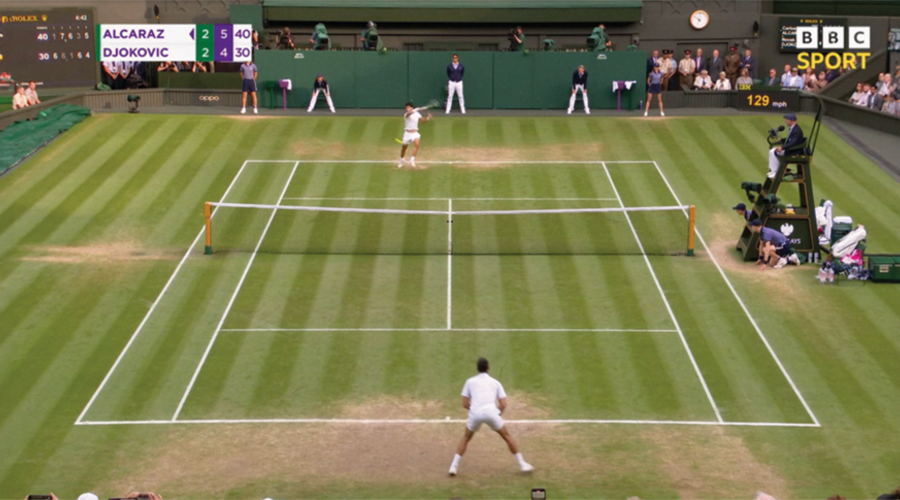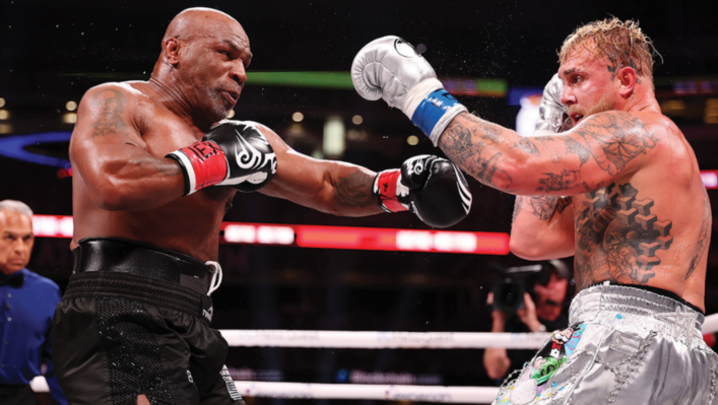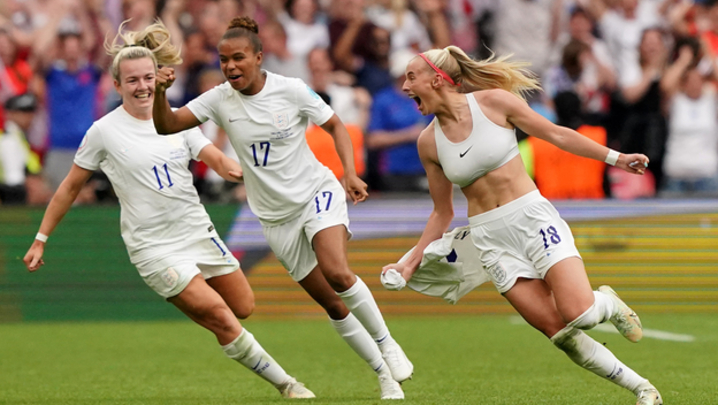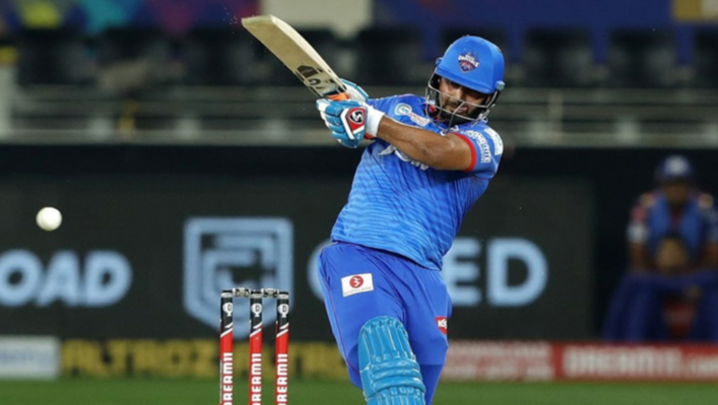The Euros and the Paris Olympics take centre stage, but almost every sport gets a look in. Matthew Bell can’t wait
Televised sport is big business, from the sums broadcasters pay for rights, to the audiences and advertising revenue it generates and the eye-watering salaries of its stars.
At the end of last month in Saudi Arabia, depending on broadcaster DAZN’s pay-per-view receipts, Tyson Fury could have pocketed more than £100m from his heavyweight unification fight against Ukraine’s Oleksandr Usyk. And he lost.
Cristiano Ronaldo – remember him? – earned $200m this season from his contract with Al-Nassr in the Saudi Pro League, according to Forbes, and $60m more in commercial endorsements. Forbes’ top 50 sporting earners, all of whom trousered $45m-plus, are from NBA basketball and NFL football in the US, but also from the worlds of football, golf, motor racing and tennis.
Over the coming months, many of these moneyed stars will be key players in TV’s great summer of sport – at the Euros, Wimbledon, The Open and the British Grand Prix. The ICC Men’s T20 Cricket World Cup, the Tour de France cycling and, of course, the Paris Olympic Games and Paralympics, complete the sporting jamboree (see box below).
The summer offers an opportunity for the UK’s traditional broadcasters – the BBC, ITV and Channel 4 – to hog the limelight, now that the club football season, where Sky and TNT Sport hold sway, has ended.
Wimbledon, the Euros, the Olympics and the Paralympics are all so-called “crown jewels of sport” and must be broadcast live on free-to-air TV. T20 World Cup cricket and The Open from Royal Troon are the only major events this summer where live coverage occurs exclusively behind a pay wall; in this case, Sky’s. Eurosport is broadcasting from both the Olympics and the Tour de France, but the BBC and ITV, respectively, offer free alternatives.
According to Barb, the three most-watched sport events last year were: England’s defeat at the hands of Spain in the Women’s World Cup final (7.2 million viewers); Carlos Alcaraz’s first Wimbledon title (6.9 million); and England vs South Africa in the Rugby Union World Cup (5.6 million).
A closer look at Wimbledon viewing demonstrates the pull of live sport. The BBC’s coverage of Alcaraz’s five-set win over seven-time champion Novak Djokovic peaked at 11.3 million, a huge audience share of 66%. And, across the tournament, 25.6 million people tuned into the BBC.
Thanks to the Men’s Euros, with England and Scotland involved, TV audiences for sport will be even higher this year. The Olympics will help, too.
Linear audiences may be in long-term decline – 51.9 million tuned into London 2012 on the BBC, compared with 45.2 million for Rio in 2016 and 36.4 million for Tokyo – but streaming is taking up the slack. BBC Sport’s Tokyo 2020 coverage had a record-breaking 104 million requests to watch online.
Broadcasting Wimbledon, the Olympics and the Euros – the latter with ITV – allows the BBC to burnish its public service credentials.
The Paralympics does the same for Channel 4, which has covered the games since London 2012. One media analyst says: “The channel loses money on it; it is quite open about that. But you have to remember that it is constantly under scrutiny for its public service broadcasting credentials. The Paralympics gives Channel 4 a good story to tell.”
Sport is a consistent banker for broadcasters, given that linear ratings for other genres are in decline. New figures from Enders Analysis reveal that, since 2015, sport viewing decreased by just 3% while other genres fell 26%. Football is becoming ever more dominant (see charts below).
“Overall, sport is almost as popular on TV as it was in 2015 – that’s saying something when you think about overall viewing decline. Every other genre is down. And the vast majority of sport is watched live, which makes it so valuable for advertisers,” says Tom Harrington, Head of Television at Enders Analysis.
A lot has been written about younger viewers lacking the attention span to watch sport live and opting for clips or, at best, highlights, often on social media. And it is true that under-35s watch far less TV, but the decline is less pronounced in sport. “While live sport is down a little bit for young people, it’s much more resilient than other genres,” says Harrington.
For the commercial broadcasters, bums on sofas matter. ITV has forecast a much-needed 12% jump in its ad revenue, largely due to the Euros, from the first quarter of this year. The further into the tournament England (and, to a lesser extent, Scotland) progress, the better. Four years ago, the England vs Denmark semi-final reached almost 24 million viewers on ITV.
With ITV running the latest series of Love Island at the same time as the Euros, it is hoping to corner the ad market. And don’t forget the Tour de France on ITV4, which attracts the advertisers’ favourite demographic – Lycra-clad road warriors, aka ageing blokes with more money than sense.
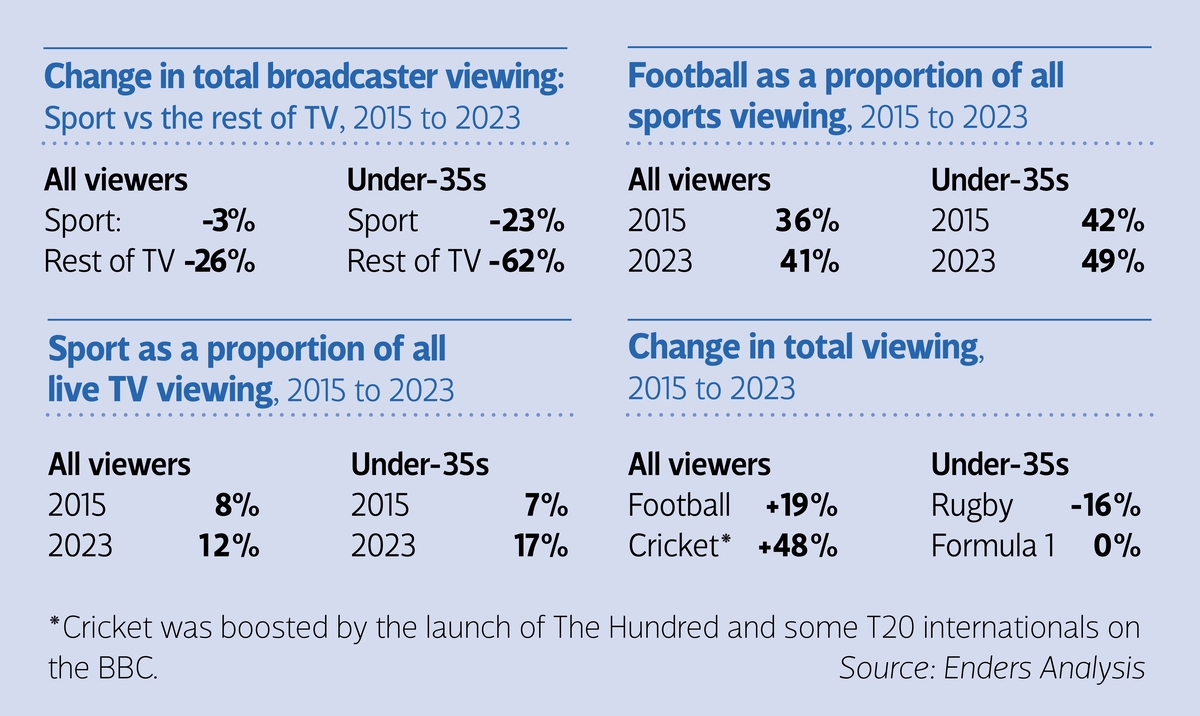
A summer of sport – what's on TV
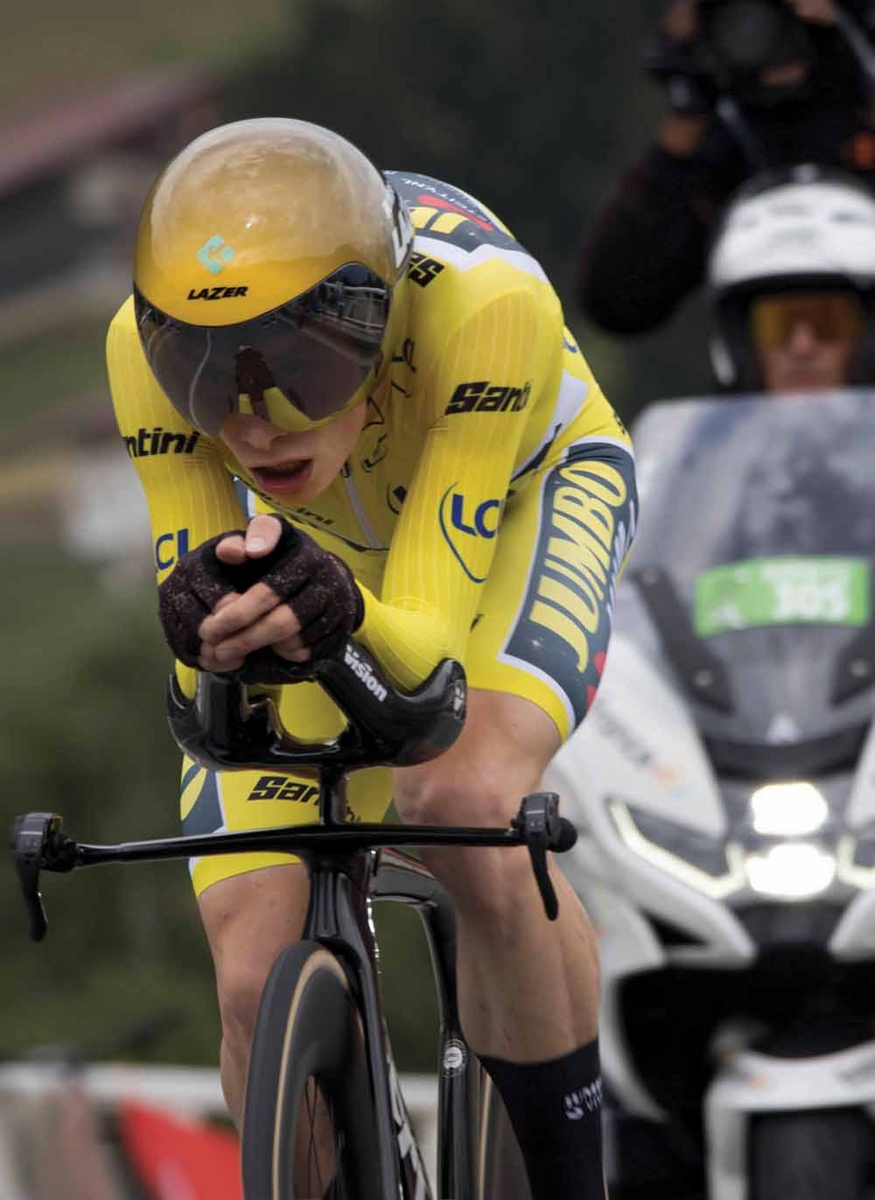
(credit: Creative Commons 2.0 Filip Bossyut)
• Less the gentle sound of leather on willow, more the thwack of a ball being launched into orbit, the ICC Men’s T20 World Cup in the US and West Indies opens the great summer of sport on 2 June. The slug-fest, live on Sky Sports, concludes on 29 June with Barbados hosting the final.
• Euro 2024 kicks off in Munich on 14 June with a group match between host nation Germany and Scotland – who have never got beyond the group stages – and ending with the final in Berlin on 14 July. Hungary and Switzerland complete Group A; England are in Group C with Denmark, Serbia and Slovenia. The BBC and ITV/STV share UK broadcast rights.
• The Grand Départ of the Tour de France finds cycling’s premier event in Florence on 29 June at the start of three and a half days’ lucrative racing in Italy, before the riders return to familiar French terrain. Catch the action on Eurosport and ITV4. The tour climaxes with a time trial to Nice on 21 July; the usual Champs-Élysées finish in Paris was kiboshed by Olympic Games preparations.
• Anyone for tennis? The BBC, as it has since 1927 (radio) and 1937 (TV), brings Wimbledon to the masses (though ITV did cover it during the 1950s and 1960s with tennis and style icon Fred Perry commentating) from 1 to 14 July.
• Formula 1’s British Grand Prix on 7 July is broadcast live on Sky and Channel 4, where, pedal to the metal, Lewis Hamilton will be chasing his ninth victory at Silverstone. New Brit kid on the block, Lando Norris, fresh from his first F1 win, at the Miami Grand Prix, will vie for the crowd’s affections.
• Sky brings The Open from Royal Troon to 19th holes and living rooms from 18 to 21 July; highlights are on the BBC.
• Football and Rugby Sevens kick off the Paris Olympics on 24 July, two days before the opening ceremony. There are 329 medal events – including Breaking (breakdancing, come on you squares) and skateboarding as the games, which run to 11 August, get down with the kids. The BBC and Eurosport do the broadcasting honours, with top gig going to the surfing commentators and crews slumming it in Tahiti.
• The Paralympics run from 28 August to 8 September, with Channel 4 providing the coverage.

